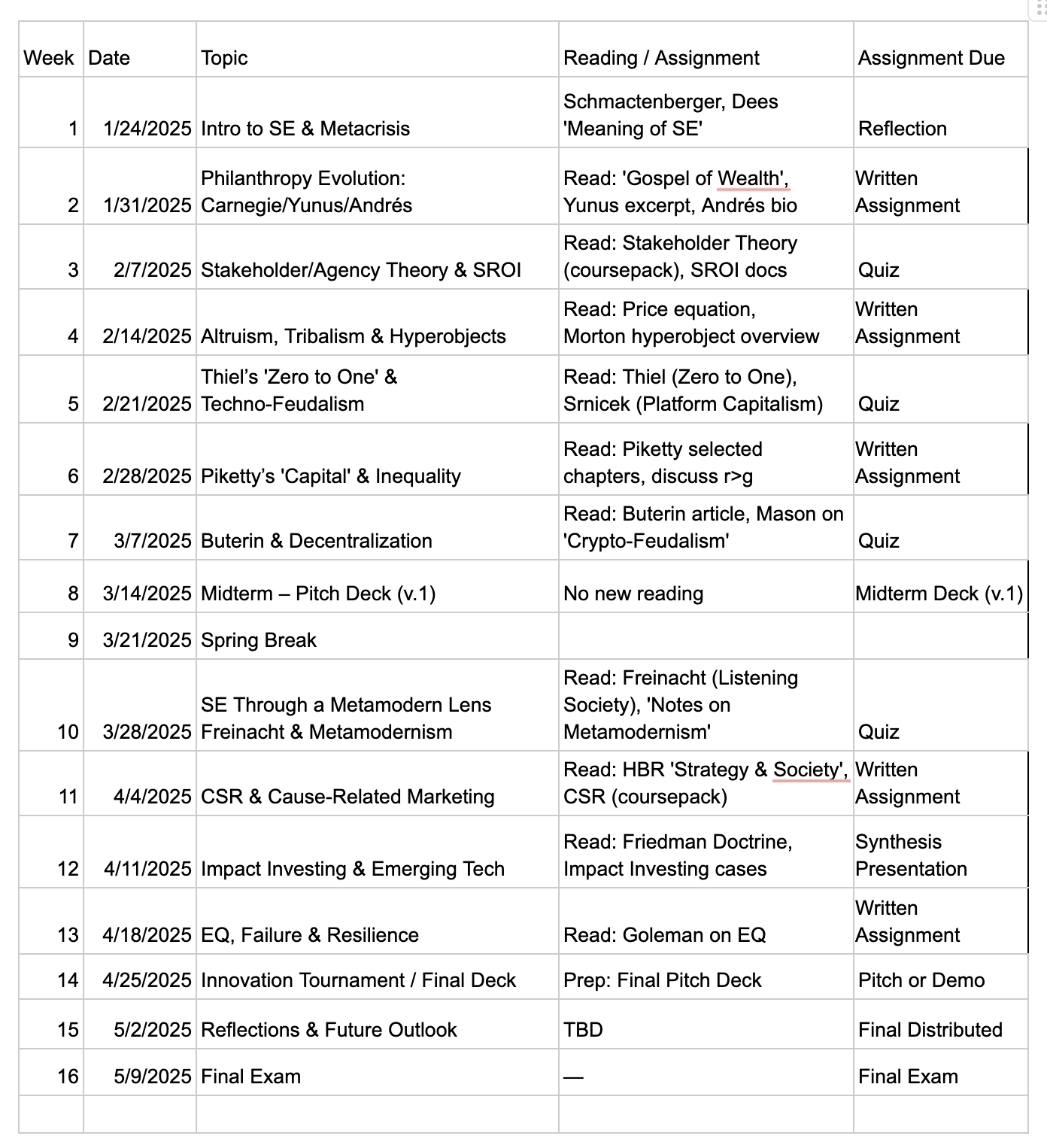SYLLABUS
Learning Objectives
By the end of this class, students will be able to:
Propose, develop, and evaluate social enterprises, considering altruism, agency theory, and the use of capitalism to effect social change in a world facing interconnected crises.
Identify, educate, learn from, and understand the needs of key stakeholders in a venture, with particular attention to shifting social priorities in our hyperconnected era.
Develop and maintain positive relationships with stakeholders, recognizing the roles of activism, tribalism, and emotional intelligence in building sustainable social ventures.
Course Topics (subject to change)
History and Definition of Social Entrepreneurship (From Andrew Carnegie to Muhammad Yunus to contemporary thought leaders like Jose Andrés)
Social Entrepreneurship in an Era of Ecological and Geopolitical Crisis
Stakeholder Theory
Altruism, Activism, and Tribalism
Agency Theory
Social Return on Investment & Theory of Change
Corporate Social Responsibility & Cause-Related Marketing
Impact Investing
Entrepreneurial Skills (Identifying Problems, Resilience, EQ)
Developing Knowledge & Relationship Resources
Supply Chains, Multipolar Tensions, and Hyperobjects
Emerging Technologies: AI and Social Media
Failure & Resilience
Mining Problems for Solutions
Course Components:
Quizzes — Weekly readings and other short assignments will be discussed in the following week’s class, and the quizzes are used to ensure that each class discussion is an informed one.
Semester-long project (THE DECK) – Over the course of the semester, all students will deeply explore a particular social issue, and develop a proposed social enterprise to address the issue. The best of class will present their social enterprise pitch deck at the GEE Innovation Tournament in on May 1, 2020.
“About” Paper – Near the midpoint of the semester, students will complete a paper demonstrating knowledge of the concepts, practices, opportunities and challenges of social entrepreneurship. The topic will be provided two weeks before the paper is due.


